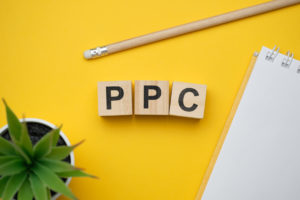
The Best Google PPC Tools: Quick Guide
There are many tools that are great for PPC. Many of these are used by both
Did you know that a third of all "near me" searches result in a purchase? Are you ranking in your local search area for your business? If not, then you need to focus on Google My Business optimization today.
Did you know that a third of all “near me” searches result in a purchase? Are you ranking in your local search area for your business? If not, then you need to focus on Google My Business optimization today.
Don’t worry if you’re not sure what GMB is or how to optimize your profile because you’re in the right place. Keep reading to learn everything you need to know in this ultimate guide to GMB.
Google My Business is a feature that allows you to claim your business on the most popular search engine on the internet. When someone searches for a business near them they’re likely looking to purchase something as mentioned above.
Have you ever found yourself on the other side of town around lunch time and you were unsure where to go? What did you do? More than likely, you took out your phone and searched for “Thai food near me.”
This is why you need to rank your GMB profile for your search location. Google knows where you are based on your phone location. They can then give you the top three businesses in your location.
This is called the Map Pack. You need to rank your business in the Map Pack if you want to grow your customer base and scale your business to the next level.
Many businesses feel that they already have a well-designed website and likely a few social media channels, so this should be enough for building your brand. However, if you want to drive more local traffic to your website and your business then you need a GMB profile. Some of the benefits of having a GMB profile include:
As you can see there are many great benefits to ranking on the Map Pack on Google. And the best way to rank your business in the top three is to optimize your GMB profile.
As mentioned earlier when someone searches for a particular business type in their location they’re ready to purchase. This is a high-converting potential customer ready to purchase the product or service you offer.
When you take the time to optimize your GMB profile you’ll see more new customers come to you from these key “near me” searches.
There are over six billion searches online every day. How many of these searches are for a business in your industry in your local area? If you want to harness the power of this online traffic then you need to optimize your GMB profile.
Now that we’ve shown the many benefits of having a profile and why you need to optimize it, let’s jump into how to go about doing just that.
The first step to optimizing your profile is to check the accuracy of your basic information. This includes facts such as name, address, phone number, hours of operation, and services offered.
Once you have this information keep adding more by including your category and business attributes. This is your chance to show how you’re different from the competition. Are you an oil change company with a coffee shop or a nail salon with a purse boutique in the back?
If so, be sure to highlight this information so anyone searching for a business in your industry in your area can see why they should choose you over the competition.
The saying that a picture speaks more than a thousand words is very true when it comes to your GMB profile. Not only can you upload amazing images highlighting your feature products or services, but you can also encourage your customers to take pictures and tag your business when they upload them to your profile.
Just like you post articles on your website and LinkedIn profile, you also should consistently post articles to your GMB profile. These posts don’t need to be lengthy, 300 words will suffice. However, you’ll want to ensure that you post regularly to keep your profile active.
The majority of people tend to trust online reviews as much as they trust a referral from a friend. When your profile has reviews from current customers you build social proof that is essential to growing your business. Be sure to ask and remind your current customers to leave a review on your GMB profile.
These steps might not be difficult, however, they do take time. And you can’t just do them once and then forget about them. The key to ranking is to keep your profile active by consistently posting images, posts, and reviews.
You don’t have time to do all this on your own, after all, you have a successful business to run. Instead, choose to work with an expert to help you grow your brand and visibility with an optimized GMB profile.
Now that you have an optimized GMB profile, you need to know what to do with it. As mentioned, having a GMB profile provides much-needed visibility for your brand and business.
You can then channel this visibility into growing your business and boosting sales. To do this you’ll want to ensure that you highlight your products or services on your profile through images and posts as outlined above.
Lastly, be sure that you don’t create your profile and then never return to update it. You can regularly add new posts and images to show Google that your business is still active and worthy to be ranked. Also, continue to ask your current customers to leave reviews to build social proof over time.
Performing an SEO local audit is the first step toward optimizing your webpage. This can help get those in your service area interested because of heightened visibility.
Did you know that 75% of visitors never go past the first page of Google results? Not only that, but the first page in search engine rankings has a click-through rate of almost 35%. As a local business, it’s important that you rise to the top of SERPs for the local keywords that potential customers are entering into Google.
Performing an SEO local audit is the first step toward optimizing your webpage. This can help get those in your service area interested because of heightened visibility. Read on to learn the basics of conducting local SEO audits and how they can help you grow.
To kick off our SEO local audit guide, it’s important to first define what an audit is.
Local SEO audits are a process where you inspect your webpage for issues that are negatively impacting your SEO. You use analytics tools to look into the condition of your webpage and find what areas you can improve on to boost your rankings.
A local SEO audit report will give you a numeric score of between 0-100. A 100 score means that you have a perfect website, but any score over 80 is excellent. It means that your content, UX, technical SEO, and mobile compatibility are in optimal condition.
You then will be given information about this score. This information will tell you what aspects of your site passed the test with flying colors and which passed with warnings. You also will be able to see where you failed so that you can take appropriate action and get them to pass.
There are several reasons that you should conduct a local audit. They include:
Before you can begin auditing your site, make sure that you set measurable objectives for it. Outline these objectives and determine what metrics you need to measure and reach goals. Once you decide on what dates you want to analyze, you can then determine the tools you need for each step of your audit.
Those looking to attract a local audience need to invest time and effort into creating a Google Business Profile (GBP). This was formerly known as Google My Business and is required for getting traffic for local searches.
When you enter your address into the GBP website, you make it possible for local users to find you when their GPS is in your service area. This gets you traffic from “near me” searches as well as local keywords. If you don’t already have a GBP account, your first local SEO audit step should be creating one.
If you already have an account, log in and look through all of the information within your profile. Update it to reflect changes in your service offerings, new hours, and any location changes. This ensures appropriate rankings since Google uses both distance and relevance to show your website to consumers via GBP.
Keywords are a critical facet of any SEO strategy, but this is especially true for local SEO. You need to target local keywords containing your city and state. This lets people in your service area find you when actively searching for nearby businesses.
You can use keyword explainer tools from sites like Moz and SEMrush to conduct an analysis of local keywords. Copy-paste your site URL into these tools and see what keywords you’re already ranking for. You’ll also get to see what queries people are making that you could rank for but currently are not.
This lets you see what keywords and phrases you should optimize for in the future. If you want to take this a step further, you can also run keyword analyses on your competitors and see what words they’re ranking for. This gives you the opportunity to rank more highly for the same keywords and put yourself at an advantage.
As time passes, backlinks that once were high-quality might become broken. This happens when the site you linked to removes its content. You need to occasionally check your backlinks to ensure that your site doesn’t come across as outdated and unreputable to Google crawlers.
A local SEO audit can help you to identify broken or outdated backlinks that require replacement. This will make your site more relevant, modern, and indexable. You’ll increase your crawlability and make your page easier for Google bots to interpret and rank.
Make sure that you consistently are performing audits around every 6 months. This will ensure that you’re always up-to-date on your SEO.
Professionals can help you with these aspects of an audit and the many more actions that we haven’t talked about here, so make sure that you get expert assistance. We have the tools, knowledge, and resources that you need to thrive.

There are many tools that are great for PPC. Many of these are used by both

The real professionals know that you can’t be an expert in everything. That’s why the best
Is Search Engine Marketing (SEM) Important for My Real Estate Agency? Starting with the basic concept
Search engine marketing (SEM) or PPC is a tactic of Internet marketing focused solely on a paid
Local citations are references to your business data, including your name, address, opening hours, web links, and product catalogs.
How many customers walk by your business every day without ever realizing you exist?
SEO local is about one thing: Attracting local customers to your business. When compared with “regular” SEO, it’s the same – but different.
If you’re feeling lost at sea, don’t worry. It’s easy to get lost in the jargon, and search engine optimization isn’t easy to navigate for new and old businesses alike. That’s what we’re here for.
Read on to become a pro in no time.
Regular, “everyday” SEO is about putting yourself at the top of search engine results. It’s achieved by optimizing your brand website, posting regular, high-quality content updates—and earning those all-important backlinks from authoritative websites.
Local SEO scales it down a notch. It aims to get you more business from web searches in your local vicinity. As with regular SEO, Google is the primary focus as it dominates the market.
And local SEO is vital for a healthy business:
Local SEO is comprised of two parts – “rich” map results and high SERP rankings. To preview a rich result, try googling a local restaurant or business. At the top, you’ll see Google Maps displaying nearby businesses – with customer reviews and site links.
Underneath, you’ll find the regular top-ranking results.
Your business can rank in both of these.
Local citations are references to your business data, including your name, address, opening hours, web links, and product catalogs. Many of them occur online without your input, and these citations can occur on all kinds of websites:
Some of the most important local citation sources include Google, Facebook, Yelp, Trustpilot, Bing – and Yellowpages.com (yes, Yellow Pages still exists).
Let’s dig deeper into why local citations benefit you. Fundamentally, they’re important for three reasons:
These days, everybody is connected to the internet – and it’s how customers decide to make purchases. From quick searches to social media trends, customers everywhere make snap decisions based on convenience.
It’s simple: If customers can’t find your business, they aren’t your customers. They belong to your competitors.
Being listed on Yelp, Yellow Pages, and similar online directories gives your customers another port of call while they’re hunting around for a business. Even if you don’t rank in the SERPs, you are discoverable in the directories.
If your business is present across directories, social media, and search engines, your business looks legitimate. Local citations show your customers that you’re the real deal – and offer them the chance to leave feedback.
When they do, they’re building social proof for you. Honest feedback from satisfied customers is worth its weight in gold.
Citations improve your company’s trustworthiness and authoritativeness – two critical parts of the EAT framework – by offering Google’s algorithms more data to verify your legitimacy.
The more sources the algorithms have to pull from, the more the SERPs will favor your business.
It takes time to build a solid profile of local citations. Above all, it’s important to be consistent in your branding and take a careful, thorough approach. The last thing you want is to end up with incorrect citations.
That will only harm your business in the long run.
The simplest path to more citations is to get in touch with directories yourself. The big ones pride themselves on providing up-to-date information and allowing you to submit your business profile directly.
For instance, you can verify your business on Yelp easily in a few simple steps. The most important directories to be listed in include:
There are online directories for most business niches and they’re easy to find. Start by googling things like “location” + “business directory” or “niche” + “business listing” to find the most relevant websites.
Charity events, sports teams, music festivals, and fun runs: They’re all in need of support. Sponsoring local events with a financial contribution, equipment, free advertising – or other support – is not only a great way to garner some local citations.
It’s great for your brand image, too.
Learning from your toughest competitors is always a winning strategy. The (local) competition doesn’t sleep, and the chances are that your competitors have already scored a citation or two that you’ve missed.
Start with a quick Google search of your known competitors and follow the breadcrumb trail to see what you find. Check out the directories listed above, scroll through their social media feeds, and see what local organizations follow them.
There are a lot of nuances to SEO that are hard to pick up on if you’re new to the game. A specialist local SEO company will already have a strategy in mind, a database of relevant directories, and a long list of industry-specific contacts to follow up with.

Alright, so picture this: you’re running a blog, hustling to churn out fresh content left and

Imagine your website as a bustling city, with each webpage serving as a unique neighborhood. Now,
Unveiling the Key to Sales and Marketing Triumph: The Power of Scoring In the ever-evolving landscape

In the ever-evolving landscape of digital marketing, video content has surged to the forefront, captivating audiences

Are your carefully crafted newsletters getting lost in the abyss of the internet? Are you tired

Rethinking Audiences: Why People Hate Marketing Until They Need It? In the world of marketing, it’s

In the realm of digital marketing, the quest for quality leads is perpetual. As marketers, we

In the digital world, websites often face a choice: to migrate or not. Whether driven by

The real estate industry is constantly evolving, and staying on top of the latest marketing trends

First of all, what is a Digital Marketing Report? Marketing reporting is the process of gathering
Before you figure out agency fees, you need to figure out what your marketing budget is. This means having a set amount set aside for advertising.
So, you’ve researched local SEO keywords for your business for countless hours. Maybe you hired a local SEO expert to help rank on Google. So why isn’t your website ranking against your rivals?
The answer lies in reputation management. It’s not enough for your site to have the right keywords. Your website must have the domain authority to rank high in search engine results.
If you are tired of your local rivals with inferior products outranking you, then read on. We cover the essential reputation management strategies for you to outrank the competition. Also, you will know why your new best friend is a reputation manager like us.
Together, your local business will get the clicks and lead generation you deserve.
Reputation management combines SEO keywords and other SERP techniques to rank a website compared to similar websites. SERP is a quick way to say “search engine results page.”
Brand reputation management involves the major search engines not considering your site as spam. Therefore, all the links leading to and out should be high domain authorities.
Domain authority is a calculated score that helps decide where your site ranks over time. Also, domain authority is separate from Google’s website ranking process.
Domain authority websites rank anywhere from 1 to 100. Thus, the higher the rank, the stronger the domain authority. This leads to a beneficial reputation management boost.
Say, for example, your business is a bakery optimized with local SEO. Reputation management positions your bakery with a stronger domain authority over other local bakeries.
This factor installs trust in website viewers looking for a bakery in the same area. As a result, they click on your website over your rivals. And yes, we offer a competitive analysis for your website.
There isn’t one brand reputation management strategy that works all the time. For best results, your reputation manager should involve several techniques. Consider these top techniques to accompany your local SEO:
Another reputation management strategy is to participate in Google Posts actively. The benefit of this is that your posts show up on your Google Business listing.
Website home pages comprise 77% of the top-ranking landing pages. A compelling home page entices your audience to stay. The longer your internet audience stays, the greater the chance for lead generation or product sales.
A vital part of local SEO involves Google Local Business. After all, Google’s search results make up more than 90% of the world’s search engine results.
Having your business and website listed in Google Business is a vital reputation management strategy.
Your business’ address through Google Business also boosts your local SEO results. However, you must verify your business address before Google Business lists it.
Google Business also accommodates multiple business locations. Customer reviews on your Google Business page boost your domain authority.
More than 50% of the world’s population uses social media. As a result, a local SEO expert frequently incorporates websites with social media. Legitimate social media sites rank as high domain authorities.
So, consider creating backlinks with these high-ranking social media sites:
A local SEO company might also consider YouTube and WhatsApp. Leaving a backlink on high-ranking social media sites boosts your site’s domain authority ranking.
Also, a backlink is a website’s URL listed on another website. By the way, nearly 45% of internet browsers study products through social media.
Social media sites like Facebook and Twitter allow you to leave links in the posts. So the more social media posts, the greater the number of backlinks. Also, the stronger your brand’s internet reputation becomes.
As a local SEO agency, we can help you create accounts with prominent social media platforms. Also, Google’s algorithm factors social media backlinks in its site-ranking process.
Another effective reputation management strategy is posting on high-domain sites. In addition to leaving comments, you can link a backlink to your website.
Backlinks on high-ranking guest posts boost your search engine results and your brand’s reputation. Here are some examples of high-domain websites for leaving reviews:
Bookmarking websites allow you to register your website. Registering at reputable bookmarking websites can swiftly boost your site’s reputation.
Many local newspapers and news stations have a comment section in their articles and blog posts. Usually, you can leave a review with your website URL. Newspapers and news station sites gather large internet traffic.
As a result, SERPs consider them a high-domain authority. As a result, your local SEO presence increases.
If you operate an eCommerce site, you might have customers leaving reviews. Responding to your customer’s reviews engages them. It is also a beneficial reputation management strategy.
Not only do frequent site returns boost your SERP ranking, but it inspires others to visit your website. The volume of your site’s reviews can generate third-party backlinks. Your online brand’s reputation grows if these backlinks are from a high domain.
Blog posts are a cost-effective and straightforward method of reputation management. Frequent blogging allows you to become a brand authority in your customer’s eyes. Of course, we can help you with blogging SEO marketing.
Engaging blog posts also keep your loyal audience coming back to your site. This aspect positively impacts your local SEO. Also, your blog posts can work in tandem with your social media campaigns and presence.
Reputation management might seem like a daunting task. We know that you have a brand to build and manage. So that’s why we’re here.
Since 2003, we have continued providing clients with exemplary SEO marketing services. Our expert staff is ready for your brand reputation management in North and South America.
Feel free to contact us about our reputation management services. You can also view our blog for reputation management tips.
Our local SEO agency expertise also extends to website development. We can offer your company digital marketing services like lead generation marketing.

Many businesses have experienced huge returns by investing in email marketing campaigns. Recently, marketers have seen

Local maps marketing is a critical component of any successful local marketing strategy. Maps and navigation

About 80% of new leads never translate into sales. Without a strong lead nurturing campaign strategy, you could

5 Web Development Consulting Tips for 2022 The latest web design and development trends in 2022

Roughly 30% of employees report that automation software saves money for their business. That’s right, by using marketing

Over 95% of your website visitors aren’t ready to make a purchase. In fact, as many as 80%

Why You Need Google Advertising Consulting in 2022 Google advertising doesn’t have to be complicated. Learn

Over 60% of marketers believe that SEO is the most important aspect of digital marketing. Due to changes

Did you know that nearly 20% of businesses fail within the first two years? The good news is

Websites are so important that 75% of consumers judge a business’s credibility by its website. Bad website design

Want to learn more about how smdigital can help?
Complete the brief form below, and one of our digital experts will reach out to you shortly.

At SMDigital, it’s all about our people, our passion, and performance for our clients! See what we can do for you!
Monday – Friday 9:00AM – 6:00PM, EST
Saturday – Sunday: Closed
Santiago Tobon
stobon@smdigitalpartners.com
US Headquarters
Congress Commerce Center
601 N. Congress Avenue
Delray Beach, FL 33445
Julián Arroyave
jarroyave@smdigital.com.co
Carrera 42 #14 – 11 Piso 5
Edificio Castropol Plaza
Medellin, Colombia S.A.
Grace Bautista
talent@smdigitalusa.com
Jose Maria del Mar St.,
cor. Abad St., Cebu IT Park,
Cebu City 6000, Philippines
Santiago Tobon
stobon@smdigitalpartners.com
US Headquarters
Congress Commerce Center
601 N. Congress Avenue
Delray Beach, FL 33445
Julián Arroyave
jarroyave@smdigital.com.co
Carrera 42 #14 – 11 Piso 5
Edificio Castropol Plaza
Medellin, Colombia S.A.
Grace Bautista
talent@smdigitalusa.com
Jose Maria del Mar St.,
cor. Abad St., Cebu IT Park,
Cebu City 6000, Philippines

At SMDigital, it’s all about our people, our passion, and performance for our clients! See what we can do for you!
Feel free to contact me, and I will be more than happy to answer all of your questions.
Schedule a 30-minute discussion with one of our digital experts. We’ll listen to your challenges and tell you if we can help.